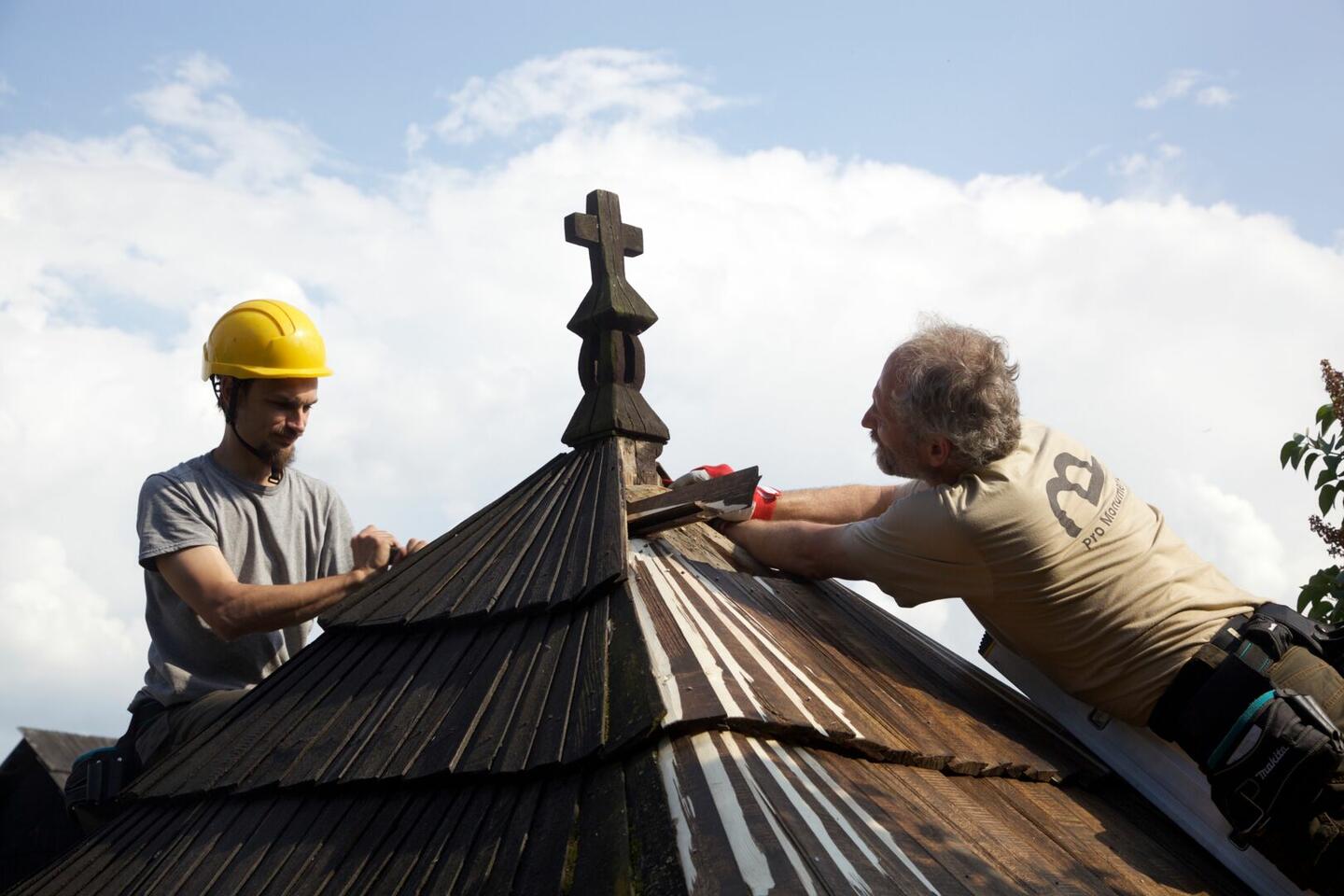Key information about the programme
- The programme is operated by: The Ministry of Investments, Regional Development and Informatization of the Slovak Republic (SK).
- The Donor Programme Partner in this programme are: The Norwegian Directorate for Cultural Heritage (RA NO) and the Arts Council Norway (ACN NO).
- The programme objective is: Social and economic development strengthened through cultural cooperation, cultural entrepreneurship and cultural heritage management.
- The programme funding amounts to €19.6 million (excluding co-financing) and is funded entirely by the EEA Grants.
Why is the programme needed?
Cultural heritage challenges
- Need to improve construction and technical conditions of cultural monuments with focus on the authenticity of the monuments and their revitalisation
- Lack of commitment, ownership, motivation and orientation on entrepreneurship
- Training in traditional skills in restoration and crafts needed
- Lack of quality and variety of services provided to the public/users of cultural heritage
- Need for sharing of expertise between cultural players (meeting the definition of the Creative Europe) across heritage and contemporary arts fields
- Need to focus on disadvantaged regions, but with already existing touristic interest
- Lack of centres for residencies for international cooperation
- Need for combatting extremism, hate speech, radicalisation of society, e.g. through supporting cultural monuments having connection with these issues
- Need for a special focus on the educational function of projects
Access to contemporary arts challenges
- Low interest in culture and art in society
- Change the way of thinking of the target groups - focus should not only be on young generation, but also other groups, such as seniors
- Need for combatting extremism, hate speech, radicalisation of society through art and culture, incl. the promotion of awareness on the culture of Roma and other minorities
- Need to accent the artistic aspects in promoting human rights
- Low interest of schools in culture, even though the system of contributions (vouchers for students) exists
- Need for a special focus on the educational function of projects
- Better cooperation between artists and schools
- Lack of centres for residencies for international cooperation
What will the programme achieve and who are the beneficiaries?
Under the cultural heritage component, the Programme shall contribute to the enhancement of cultural heritage management conditions aimed at safeguarding built cultural heritage and stimulating the best possible ‘reuse’ of this heritage. This is expected to result in a stronger function of this heritage in local community. The revitalised cultural heritage is also expected to result in a significant increase of income generated by supported cultural heritage buildings and sites and an increase in number of visitors to for example culture and art in these buildings. It is expected that, after the Programme is implemented, the income generated by the supported monuments will have doubled, with the corresponding increase in the number of people using these buildings.
In the area of contemporary arts and culture the programme will increase the number of people attending artistic events. Core statistical data measuring the attitude of public towards arts and culture are outdated (2010), therefore it is recommended that newly acquired data (2017) are used as a baseline. It is expected that the Programme will contribute to the artistic promotion of human rights, increase the variety of cultural activities and the number of its visitors and transfer new trends, styles and approaches to culture between Slovakia and the Donor States.
The implementation of the Programme shall contribute to the enhancement of cooperation between donor states and beneficiary state entities in the programme. While it is expected that all projects under the arts component of the programme will be implemented in bilateral partnership, at least 30% of restoration projects shall have at least one partner from the Donor States.
How will the programme strengthen bilateral relations?
The Programme Operator cooperates with two DPPs – the Directorate for Cultural Heritage (RA) and the Arts Council Norway (ACN). The Programme Operator closely cooperates with similar institutions in Slovakia – Ministry of Culture, Monuments Board of the Slovak Republic and the Slovak Arts Council. All these institutions (incl. the Programme Operator), should work closely together to successfully implement the Programme. As the national authorities on cultural heritage in Norway, they will bring their expertise in fields related to the Programme and encourage bilateral cooperation on project level and advice on donor project partners. Both DPPs will also bring valuable knowledge on the implementation of the EEA Grants to the cooperation.
The Directorate for Cultural Heritage will advise on the development and implementation of the part of the programme dedicated to cultural heritage management, the Arts Council Norway will advise on contemporary arts and culture
Availability of funding through open calls
There are currently no open calls in the programme.
More information about the programme here.
